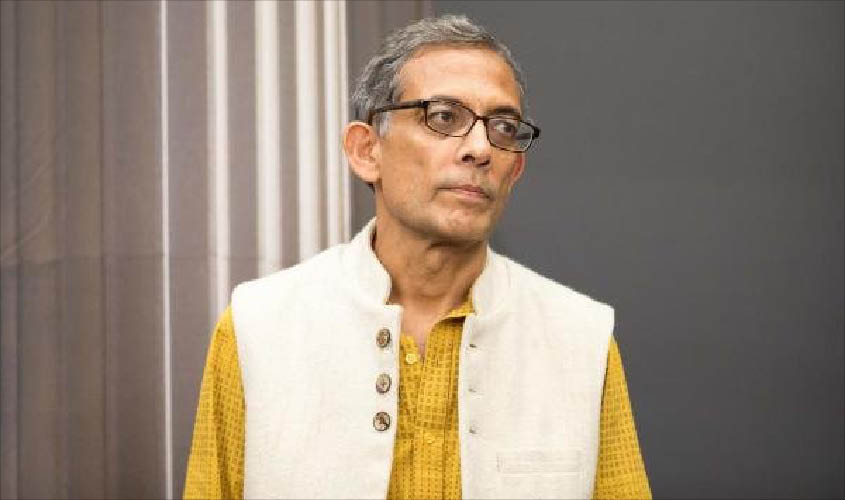California University professor Karthik Muralidharan will supervise the project.
HYDERABAD: The latest Nobel Prize winner for economic sciences Abhijit Banerjee’s Abdul Latif Jameel Poverty Action Lab (J-PAL) has bagged a major project from the Telangana government for reviving school education in the state. The government is worried over the falling enrolment of students in government-run schools as well as their poor quality of learning.
The state government, which is in talks with the J-PAL which has its base out of Jaipur in Rajasthan, has decided to grant the project to the organisation in the wake of Abhijit Banerjee bagging the coveted Nobel Prize this week. The project, however, would be directly supervised by economics professor Karthik Muralidharan, of California University, US, according to sources in the education department.
Professor Muralidharan obtained his PhD from Michael Kremer, who, too, got the Nobel Prize along with Esther Duflo, partner of Banerjee, from Harvard University. Muralidharan co-chairs the education programme of J-PAL. For this project, he will also take the cooperation of the Central Square Foundation (CSF), a Delhi-based educational technology firm.
Muralidharan has already visited a few times the schools in Telangana and held talks with the education department officials, including Education Secretary B. Janardhan Reddy on the need to improve the education system here. Janardhan Reddy has issued orders constituting a committee comprising a senior official, a nodal officer from the department, a functionary of CSF and Muralidharan.
The officials have not divulged the details of the financial terms of the project, but sources said that it would depend on its outcome progressively. Already, the Rajasthan’s government has utilised the services of J-PAL and the results were encouraging for sometime, said an official from the Telangana education department. This project would be implemented for an initial period of five years.
The randomised control trails (RCT) technique which helped Abhijit Banerjee and his two colleagues win the Nobel is going to play a role in assessing the situation in Telangana schools too. Already, the Centre and the state have done a series of studies and surveys to find out the reasons for poor enrolment and the discouraging comprehension levels among students.
Very recently, a government survey has found that there are as many as 916 schools where there are no students, due to a variety of reasons. In hundreds of other schools, the enrolment is less than 50, thus leaving them unviable to run. Incidentally, most of them are in remote rural areas. The ratio of girl students is much worse here.
Another survey a few years ago by the State Council for Educational Research and Training (SCERT) found that around 80% students up to Class 10 cannot write simple sentences in English and do simple mathematics. The SCERT also found that absence of teachers was a major problem that hit the government schools in rural areas, but the allegation was denied by the teachers’ associations.
The state is struggling to find a solution in relocating (in the name of rationalisation) these schools and fighting a case in the Supreme Court which is hearing a petition opposing the move. The petition filed by some NGOs and activists contended that the government was planning to shut down the schools to help the private schools. Janardhan Reddy has expressed hope that this project would help the state.
Telangana is not new to Abhijit Banerjee and Esther Duflo. They had visited Hyderabad several times in the past and were involved in some studies of RCTs to find out the causes of rural and urban poverty levels. The combined Andhra Pradesh government which had promoted micro-financing on a massive scale in the late 1990s commissioned several studies to track removal of poverty among self-help groups.
Banerjee and Duflo had visited around a dozen slums in Hyderabad city and found out the varying levels of poverty eradiation among women, who constitute the majority of self-help groups. The RCTs conducted by the couple is stated to have observed that the caste, region and habits of male members of the household played a role in the way women utilised their loans through micro-financing.
The couple then won the appreciation from the government officials for their focused studies. Now that Banerjee and Duflo have got the Nobel Prize, the education department of Telangana is keen on utilising their services, though it is not known whether Muralidharan would eventually involve Banerjee and Duflo in the project.

